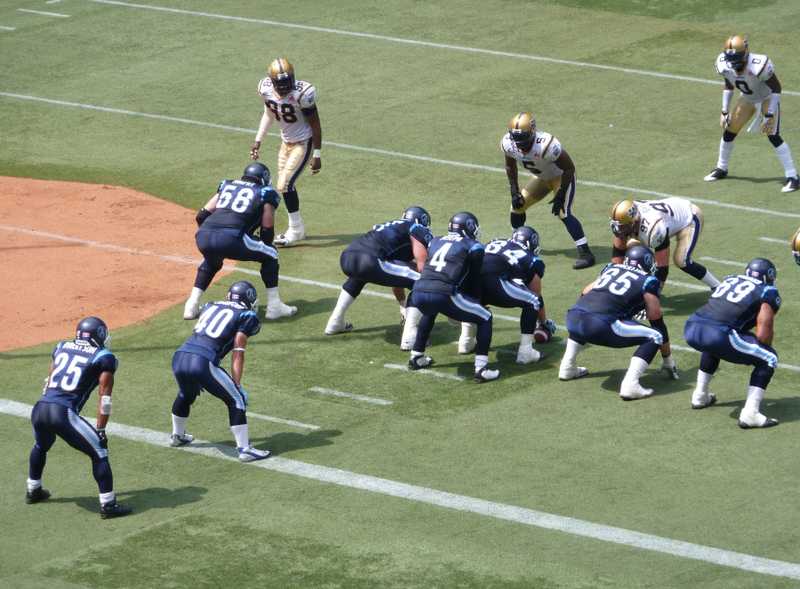Here’s a surprising fact that our football-crazy neighbours to the south might find interesting: The Canadian Football League (CFL) allows players to consume marijuana.
Although the CFL underwent an overhaul in its drug testing policy in 2016, it didn't affect the previous rule that allowed players to consume cannabis. The new deal is in line with World Anti-Doping Agency suspensions, but the CFL banned substance list is ultimately the league’s choice—and they chose not to include marijuana.
Marijuana & the Canadian Football League
CFL locker rooms tend to reflect what's happening in society. In the 1970s, when cannabis use was popular but looked down on by much of society, Canadian football players were punished for using it. These days, although the stigma around consuming cannabis persists, it's starting to ease away.
While the CFL tests for performance-enhancing drugs, it doesn’t test for recreational substances like cannabis—despite it still not being legal in Canada. That policy was launched in 2010, which means that many players before it were let go for using marijuana, Blue Bombers' Bernie Ruoff and Mack Herron among them. The CFL's policy of not testing its players for marijuana signals that times are changing, and that the plant’s benefits of pain relief and as a sports recovery aid are gaining traction.
CFL a Haven for NFL Players Who Consume Cannabis
Two stories of how the league’s cannabis-friendly drug policy relates to the National Football League (NFL) in the U.S. are those of Ricky Williams and Onterrio Smith, who joined Toronto and Winnipeg respectively after repeatedly failing marijuana drug tests in NFL, where cannabis remains banned.
Williams became cannabis-infamous when his refusal to stop consuming the plant—which he said helped ease his depression and social anxiety disorder—resulted in a third positive marijuana test, which meant he’d be heavily fined and suspended for four games. Rather than face those penalties, he retired from football.
He returned to the Dolphins in 2005, but again failed a drug test in 2006 and was suspended for the entire season. The Dolphins essentially loaned him to the Argonauts for the year, where he played in 11 games before returning to the NFL when his suspension was over.
The whole episode was controversial and as of 2007 there’s a CFL rule prohibiting any team from signing a suspended NFL player—it’s known as “The Ricky Williams Rule.”
For Smith, during his third year in the NFL with the Minnesota Vikings, security at Minneapolis-St. Paul International Airport found his freeze-dried urine and a Whizzinator kit used to dodge urine drug tests. The next month, he failed his third drug test and was suspended for the season. The Vikings released him in 2006, and he signed with the Blue Bombers two months later. He, however, arrived at training camp 20 pounds overweight and was quickly released.
Today, marijuana seems to be a don't-ask-don't-tell locker room secret among Canadian football players, their coaches and the media. While American players like Eugene Monroe and Marvin Washington are speaking out about player injuries, the prevalence of opioid use and the benefits of cannabinoids, the same isn’t happening in Canada where players are allowed to treat their ailments themselves with cannabis.
The Pros & Cons of the CFL Cannabis Drug Policy
Cannabis is a relatively harmless substance and much more so when compared to the harsher nonsteroidal anti-inflammatory drugs and opioids that are commonly used to drive away post-game pains. If teams were to cut every player who uses cannabis, it would be excruciatingly difficult to find enough good marijuana-free players to make up a team.
Attitudes and laws about cannabis in Canada are changing, and it may even mean that more young players enter the league already being consumers. Having a policy that allows marijuana means that its use is no longer a secret—at least less of one.
Where it gets a little hazy is how CFL players use their status and influence as community leaders and what that means if they are also cannabis consumers.
A player who opens up about using marijuana medicinally instead of dangerous opioids could make a positive impact on fans who rely on pain medications or who are concerned about the opioid abuse epidemic in Canada.
According to a telephone survey of 644 retired NFL players conducted in 2010, over half (52%) used opioids during their NFL career and 71% reported opioid abuse. Additionally, 15% of the NFL opioid abusers were misusing the drug at the time of the survey. That puts NFL players taking three times the amount of opioids than the general U.S. population takes.
However, while players who use marijuana may be suitable role models for their adult fans, it's younger fans—who aren’t of legal age to use recreational cannabis—that are getting the message, too.
Photo credit: Ethan Farquharson
